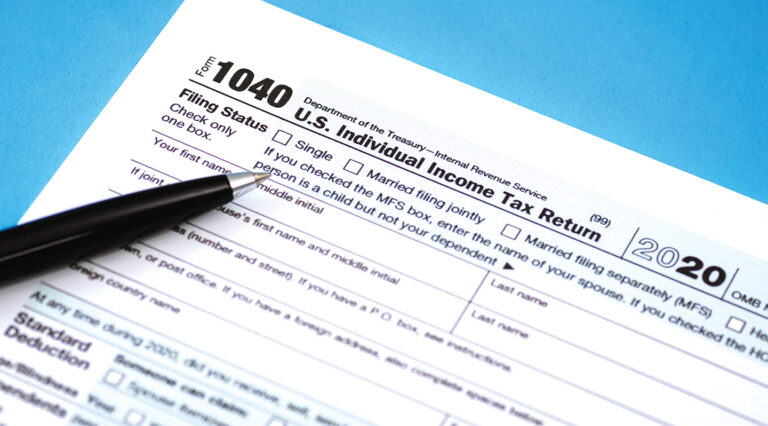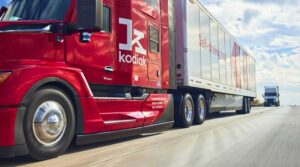The final two weeks of the year can be a joyful time filled with Christmas cheer, creating new memories with family, and making plans for the new year.
If you own a trucking business, it’s also time to wrap up the current year and prepare for the next.
One of the most important things to handle is your year-end tax preparation. You’ll need to pay income tax on your profits, of course — but keep in mind that profit is what’s left over after you subtract business expenses from your revenue. Any money you spend on your business before the year ends will reduce the profit you’ll owe taxes on.
A good example is the purchase of new tires. A set of steer tires, mounted and balanced, can cost $1,000 or more. Make the purchase before Jan. 1, and you can deduct the cost from this year’s taxes.
But first … do you NEED to reduce this year’s taxes? To answer this, you need to know how your business is performing. If you had a great 2021 and expect your profits to be high, you’ll want to claim as many business expenses as you can. On the other hand, if 2021 was a rough one and you expect little to no profit (or even a loss), your income tax liability for the year needs to be low. You might choose to hold off on any large expenses so they can count against next year’s tax liability.
Of course, a professional accountant or tax preparer can help you make sound business decisions. Dennis Bridges of eTruckerTax shared some advice about spending.
“If you are considering the purchase of a new or replacement tractor or trailer or other major equipment, do your best to at least get it under contract by Dec. 31,” he advised.
One reason for adhering to this time frame is depreciation.
“Current liberal depreciation rules allow an owner-operator to deduct up to the full cost of heavy equipment,” he explained. “So, if you had a very good year and you’ll have a high net income, you and your tax preparer can elect to deduct up to the full purchase price of your new equipment.”
Bridges points out that the purchase of used equipment qualifies, too — and it doesn’t matter how much of the purchase price you finance. The cost is what matters, not how long it takes you to pay for it.
Smaller purchases can be worth making too, according to Bridges.
“Anything you purchase on a credit card can also be fully deducted for the current calendar year,” he explained. “Even purchases you were planning for February or March can be deducted if you go ahead and put them on your card this year before Dec. 31.”
He suggests buying items such as tires, office furniture, computers or even having heavy maintenance work done.
You can also set up an IRA or other retirement account to prepare for the future.
“It’s never too early OR too late to start saving for retirement,” Bridges said. “And a plan such as a SEP-IRA or single-owner 401k allow you to contribute 25% of your net income or W-2 earnings, up to $58,000 annually for 2021.”
Keep in mind that many retirement plans have penalties for early withdrawal of funds, so plan to leave your investment alone if you can.
A review of your personal financial records, and your spouse’s, if applicable, could reveal more business-related expenses you can claim. Don’t forget that mileage on your personal vehicle is deductible if it’s used for business purposes. Trips to obtain parts or visit tax offices (or your tax preparer) are deductible — but even trips to the grocery store or a department store can be deducted if you bought items for the business.
The folks at eTruckerTax offer a downloadable checklist to make the job of providing information to your tax preparer easier. Included is a list of items you may have purchased but didn’t know you could deduct. Those air fresheners you purchased are deductible. So is the pillow you bought for the bunk, and the duct tape in the side box. Don’t forget, face masks are also deductible if they’re used for business.
The end of the year is also a good time to consider the entity you have set your business up under. Many truckers file as a sole proprietor.
“Depending upon your situation and your income, it could make sense for you to consider switching to an LLC, which can be easily converted to an S-Corporation for significant tax savings — again, depending upon your current income picture,” Bridges explained.
Consider, too, your tax liability.
“Do you typically owe a bunch at tax time?” Bridges asked. “Start making at least some amount of estimated payments, or increase your withholding if you’re on a W-2.”
He explained that you can even make monthly estimated tax payments if you want, allowing you to contribute more during months of high revenues so your total bill the following April is reduced.
Bridges also had some advice for truckers who aren’t sure if they’re counting all their expenses or are having difficulty keeping up with all of them.
“Evaluate your record-keeping system, or ask your tax professional how to better capture expenses that you’re losing out on,” he suggested.
Of course, Bridges has one additional piece of advice that he hopes drivers will follow — and that’s to use the services of a tax professional.
Operating a trucking business is hard work, made harder by the need to keep up with tax laws and obligations. By carefully reviewing your records and your practices at year’s end, you may find ways to decrease your tax liability while increasing your take-home dollars. You just might reduce your stress levels, too.
Cliff Abbott is an experienced commercial vehicle driver and owner-operator who still holds a CDL in his home state of Alabama. In nearly 40 years in trucking, he’s been an instructor and trainer and has managed safety and recruiting operations for several carriers. Having never lost his love of the road, Cliff has written a book and hundreds of songs and has been writing for The Trucker for more than a decade.















